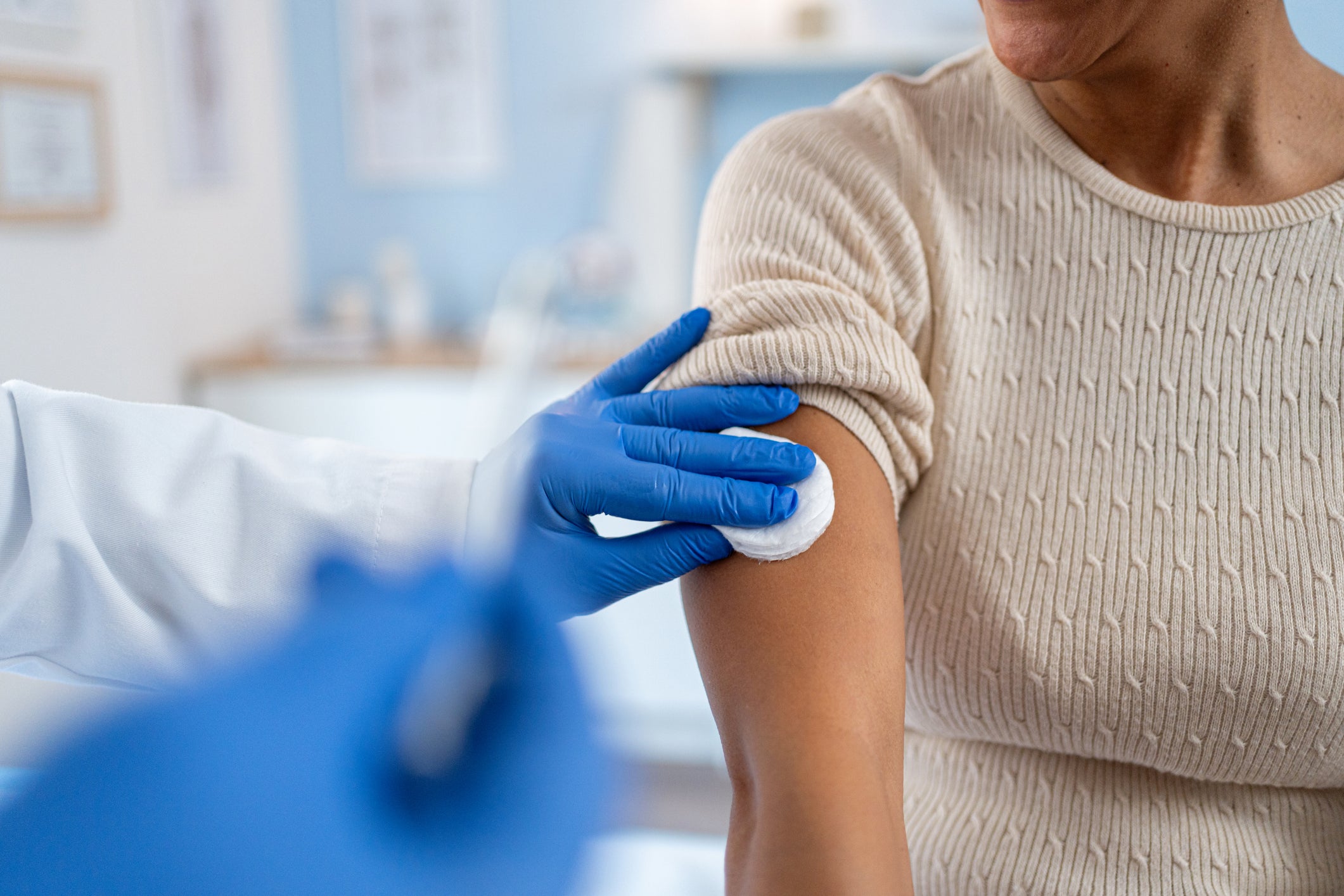Cases of flu ‘rising rapidly’ as Brits urged to get vaccinations
Chief medical officer Professor Chris Whitty says cases of influenza are ‘rising rapidly’

Your support helps us to tell the story
From reproductive rights to climate change to Big Tech, The Independent is on the ground when the story is developing. Whether it's investigating the financials of Elon Musk's pro-Trump PAC or producing our latest documentary, 'The A Word', which shines a light on the American women fighting for reproductive rights, we know how important it is to parse out the facts from the messaging.
At such a critical moment in US history, we need reporters on the ground. Your donation allows us to keep sending journalists to speak to both sides of the story.
The Independent is trusted by Americans across the entire political spectrum. And unlike many other quality news outlets, we choose not to lock Americans out of our reporting and analysis with paywalls. We believe quality journalism should be available to everyone, paid for by those who can afford it.
Your support makes all the difference.Cases of winter flu are “rising rapidly” in England as the country’s chief medical officer urges eligible individuals to get vaccinated.
The highest number of cases is among those aged five to 14, where 16.9 per cent of tests have returned positive, up from 11.5 per cent the previous week.
Professor Chris Whitty, sharing the data on X, warned: “Influenza is now rising rapidly. Antiviral flu medicines are now available in primary care. If you are eligible, please get vaccinated.”
The current number of cases is similar to the 2022-2023 flu season, which peaked on 20 December with 33 per cent of tests positive. Last year, however, the peak was smaller (16.7 per cent) and occurred more than a month later, on 27 January.
Data from the UK Health Security Agency (UKHSA) shows flu rates are increasing but remain at “low activity levels”. On 27 November, the latest available data, 7.9 per cent of flu tests came back positive.
Flu is one of the viruses circulating this winter, alongside COVID-19, respiratory syncytial virus (RSV), and norovirus, which have all been grouped under the term “quad-demic”. Health experts anticipate these viruses will peak at different times, straining the NHS.
Dr Alexander Allen, consultant epidemiologist at UKHSA, said: “Flu is driving the rise in winter illnesses, with emergency department attendances also on the rise.”
He urged those eligible for flu, COVID-19, or RSV vaccines to book appointments ahead of the busy winter period, as vaccination remains the best defence against these diseases.
Flu symptoms include a sudden high temperature, body aches, fatigue, dry cough, sore throat, headache, and difficulty sleeping. The flu vaccine is offered by the NHS each autumn and early winter, with free jabs available to those over 65, pregnant women, individuals with long-term health conditions, care home residents, carers, and frontline health and social care workers.
Between 30 September and 17 November, NHS data showed an average of 335 vaccinations were given every minute, amounting to around 3.4 million vaccines administered each week.
In Scotland, first minister John Swinney has encouraged people to check their eligibility for free flu and COVID-19 jabs. He recently received his flu vaccine at Blairgowrie Community Hospital, highlighting the importance of vaccination in reducing illness severity and easing pressure on NHS services during the winter months.
Join our commenting forum
Join thought-provoking conversations, follow other Independent readers and see their replies
Comments